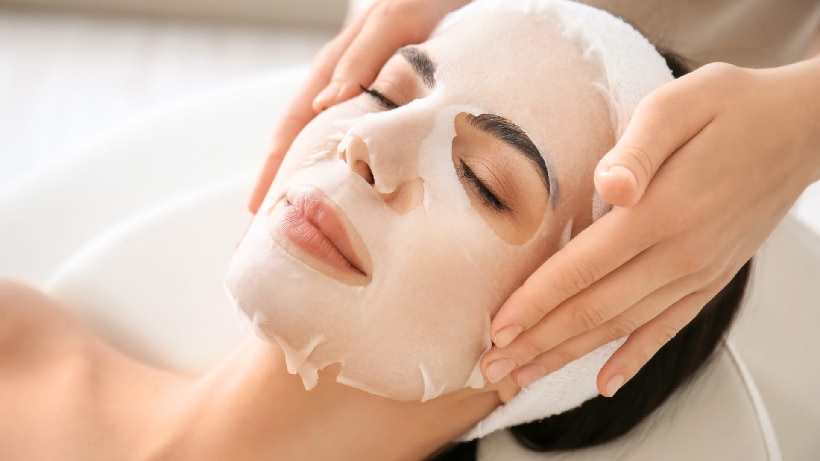Facial masks are an essential part of skincare, offering deep nourishment, hydration and targeted treatment for various skin concerns. With a vast range of options available, choosing the right mask for your skin type can make a significant difference in achieving a healthy and radiant complexion. Whether you have dry, oily, combination or sensitive skin, understanding the different types of facial mask and their benefits can help you make an informed choice.
Why Facial Masks Are Important in Skincare
Facial masks provide concentrated ingredients that work to address specific skin concerns more effectively than daily skincare products. They help cleanse, hydrate, brighten and balance the skin while providing a spa-like experience at home. Regular use can improve skin texture, unclog pores and promote a healthy glow.
However, selecting the wrong type of mask may lead to irritation or ineffective results, so it’s crucial to choose one that aligns with your skin type and needs.
Choosing a Facial Mask for Your Skin Type
Dry Skin: Hydrating and Nourishing Masks
If you have dry skin, your primary concern is likely a lack of moisture and occasional flakiness. Opt for masks that contain hydrating and soothing ingredients such as hyaluronic acid, aloe vera, glycerin and ceramides. These ingredients replenish moisture, strengthen the skin barrier and leave your skin feeling soft and supple.
Cream masks and gel-based masks work best for dry skin, as they provide intense hydration without stripping the skin’s natural oils.
Oily Skin: Clay and Charcoal Masks
For those with oily or acne-prone skin, excess sebum production can lead to clogged pores, blackheads, and breakouts. Clay and charcoal masks are ideal because they help absorb excess oil, detoxify the skin and unclog pores without causing excessive dryness.
Look for masks with ingredients like kaolin clay, bentonite clay, activated charcoal and salicylic acid, which work to remove impurities while keeping the skin balanced. Using these masks once or twice a week can help control shine and reduce breakouts.
Combination Skin: Balancing and Multi-Masking
Combination skin can be tricky, as it often features both oily and dry areas. The best approach is to use balancing masks that provide hydration while regulating oil production.
Multi-masking is another effective technique for combination skin. This involves applying different masks to specific areas of the face—using a clay mask on the T-zone to absorb excess oil while applying a hydrating mask on the cheeks to prevent dryness.
Ingredients such as niacinamide, green tea extract and chamomile can help balance combination skin by addressing both hydration and oil control.
Sensitive Skin: Soothing and Gentle Masks
Sensitive skin requires extra care, as it is more prone to redness, irritation and allergic reactions. Choose masks with gentle, fragrance-free formulas containing calming ingredients such as aloe vera, chamomile, oat extract and centella asiatica.
Avoid masks with alcohol, artificial fragrances, and harsh exfoliants, as they can trigger irritation. A gel or cream-based mask with soothing properties will help reduce redness and provide relief for sensitive skin.
Dull and Uneven Skin: Brightening Masks
If your skin looks dull or lacks radiance, a brightening mask can help restore a healthy glow. Look for ingredients like vitamin C, licorice extract, alpha hydroxy acids (AHAs) and rice extract, which work to boost skin brightness, even out tone and enhance overall radiance.
Exfoliating masks with gentle fruit enzymes can also help remove dead skin cells, revealing a more luminous complexion. However, these should be used in moderation to avoid irritation.
Types of Facial Masks and Their Benefits
Sheet Masks
Sheet masks are pre-soaked fabric or gel sheets infused with a serum-like formula. They provide hydration and nourishment while creating a protective barrier that allows the skin to absorb the active ingredients effectively. They are ideal for all skin types, depending on the formula used.
Clay and Charcoal Masks
These masks help detoxify and purify the skin by drawing out impurities and excess oil. They are best suited for oily and acne-prone skin but may not be ideal for dry or sensitive skin unless formulated with hydrating ingredients.
Gel Masks
Gel masks are lightweight and cooling, making them ideal for sensitive, dry or irritated skin. They often contain soothing ingredients like aloe vera, cucumber and green tea extract, which help calm inflammation and provide deep hydration.
Cream Masks
Rich and nourishing, cream masks are perfect for dry and mature skin. They contain emollient ingredients such as shea butter, ceramides and essential oils that deeply hydrate and replenish moisture levels.
Exfoliating Masks
Exfoliating masks contain gentle acids like glycolic acid, lactic acid, or fruit enzymes to remove dead skin cells and reveal a smoother, more radiant complexion. These should be used sparingly to avoid over-exfoliation.
How to Use a Facial Mask for Best Results
For optimal results, apply a facial mask after cleansing and exfoliating (if needed) to allow the active ingredients to penetrate deeply. Leave the mask on for the recommended time, then rinse or remove it according to the instructions. Follow up with a moisturiser to lock in the benefits.
Using a facial mask one to three times a week, depending on your skin type, can enhance your skincare routine and keep your complexion looking fresh and healthy.
Conclusion
Facial masks are a powerful addition to any skincare routine, offering targeted benefits that address specific skin concerns. Choosing the right mask based on your skin type ensures that you achieve the best results without irritation or imbalance. Whether your skin needs hydration, oil control, soothing or brightening, there is a facial mask suited for your needs. Regular use can help maintain a clear, glowing complexion, providing a boost of nourishment and care to your skin.






